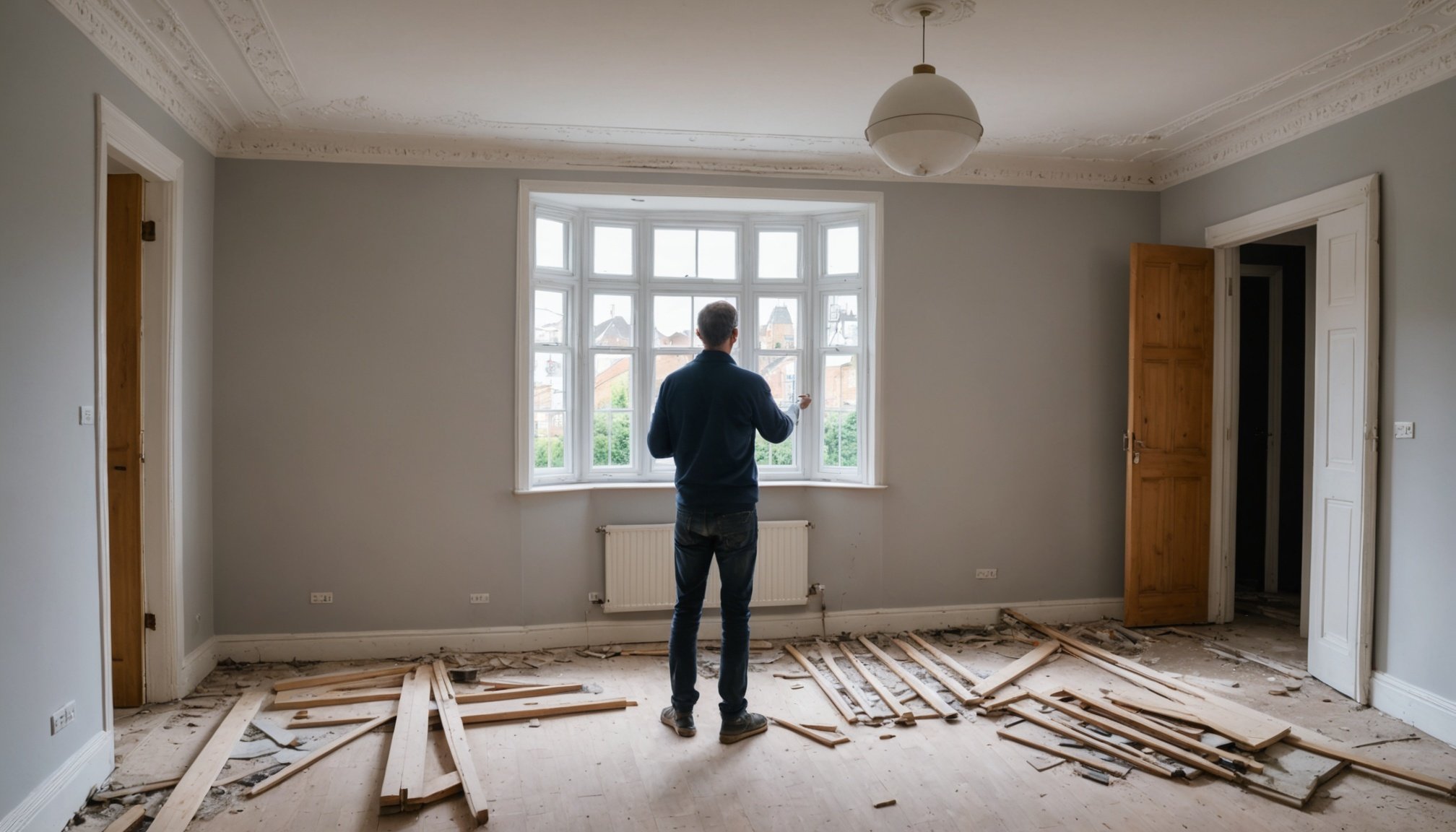Purchasing a fixer-upper home is a compelling option for many in the UK, offering the promise of creating a unique living space while potentially increasing property value. Yet, this journey can be fraught with challenges that could transform your dream home into a financial headache. Understanding the common pitfalls associated with buying a fixer-upper is vital to avoid costly mistakes and ensure your renovation project becomes a success story rather than a cautionary tale. In this article, we delve into the crucial aspects you need to consider, providing you with the insights needed to make informed decisions on this exciting venture.
Misjudging the Real Cost of Renovations
Embarking on the purchase of a fixer-upper often comes with the allure of bargain prices and endless possibilities. However, one of the most common pitfalls is underestimating the total costs involved in transforming the property. While the initial purchase price may seem attractive, it’s essential to account for the potentially substantial renovation costs that can quickly accumulate.
Additional reading : How can local housing market trends influence your buying decision in the UK?
Hidden Structural Issues
Many fixer-uppers have underlying structural issues that are not immediately apparent. From rotting beams to faulty wiring, these hidden problems can drastically increase your renovation budget. It’s crucial to conduct a thorough home inspection before purchasing to unearth any potential surprises.
Underestimating Material and Labor Costs
Renovation projects often exceed their initial budget due to an underappreciation of material and labor expenses. In the current climate, where inflation and supply chain issues are prevalent, these costs have seen significant increases. Therefore, it’s wise to factor in extra funds to cover unexpected overruns.
Have you seen this : What should buyers know about the implications of shared ownership in the UK?
DIY vs. Professional Help
While taking a DIY approach might seem cost-effective, it can lead to more expenses if not executed correctly. Certain tasks, especially those involving structural changes or specialist skills, should be left to professionals to avoid expensive errors. Striking a balance between doing it yourself and hiring experts is key to managing your renovation budget efficiently.
Underestimating Time Commitment
The allure of creating your dream home can sometimes overshadow the reality of the time investment required. Time management is an often overlooked aspect when assessing fixer-upper projects, leading to unnecessary stress and prolonged living in discomfort.
Setting Realistic Timelines
Many new homeowners envision a quick turnaround, picturing moving into their newly refurbished home within months. However, renovations can unavoidably hit snags such as delays in obtaining permits, unexpected structural issues, or contractor availability issues, which can extend timelines significantly.
Adapting to a New Routine
Living through a home renovation can disrupt daily life considerably. From constant noise to dust and inconvenience, it’s a lifestyle adjustment that requires patience and flexibility. Preparing for these changes beforehand can mitigate frustration and ensure a smoother transition.
Managing Renovation Projects
Balancing work, family, and renovation projects necessitates efficient time management skills. Delegating tasks, setting clear goals, and maintaining open communication with contractors can help streamline the process. Furthermore, acknowledging that patience is vital will help you handle delays and unexpected challenges with grace.
Navigating Permission and Regulation Hurdles
Renovating a fixer-upper often involves more than just creativity and hard work; it requires navigating the complex web of UK building regulations and permissions. Misunderstanding or overlooking these requirements can lead to legal headaches.
Understanding Local Planning Permissions
Before commencing any significant alterations, it’s imperative to check whether planning permission is required. Certain projects, especially those involving structural changes or extensions, necessitate permissions from local authorities. Failing to secure these can halt your project or result in legal repercussions.
Compliance with Building Regulations
Every renovation must adhere to specific building regulations that ensure safety and quality standards are met. These regulations cover everything from structural integrity to energy efficiency. Not complying can result in fines and the added expense of addressing non-compliance issues.
Listed Buildings and Conservation Areas
If your property resides in a conservation area or is a listed building, expect additional layers of regulation. Modifications to these properties can require specialized permissions, and any unauthorized work can lead to severe consequences. Seeking advice from experts familiar with local regulations can save time and avoid potential pitfalls.
Professional Help vs. DIY Approach
Determining the balance between employing professional help and taking on DIY tasks is pivotal in ensuring your project stays on track and within budget. Each approach has its merits, but understanding their intricacies is crucial.
When to Hire Professionals
For tasks involving technical expertise, such as plumbing, electrical work, or structural modifications, hiring professionals is advisable. Their expertise ensures that work complies with safety and quality standards, reducing the risk of costly mistakes.
The Benefits of DIY
Tackling certain aspects of the renovation yourself can be rewarding and cost-effective. Painting, landscaping, and minor carpentry are areas where DIY can shine, allowing you to personalize your space while saving on labor costs.
Finding the Right Balance
An effective renovation strategy involves knowing your limitations and recognizing when to call in the experts. Clear communication with contractors, coupled with a realistic assessment of your skills and available time, will guide this decision-making process.
Purchasing and renovating a fixer-upper in the UK is an exciting venture filled with potential rewards. However, the path is laden with potential pitfalls that can turn this dream into a daunting ordeal. By understanding the true cost of renovations, the time commitment required, navigating permissions and regulations, and finding the right balance between professional help and DIY, you can avoid these pitfalls. With careful planning and a realistic approach, your fixer-upper can transform into the charming home you envision, adding personal satisfaction and financial value to your life. Remember, the key to success lies in informed decision-making and a balanced approach to the challenges ahead.











